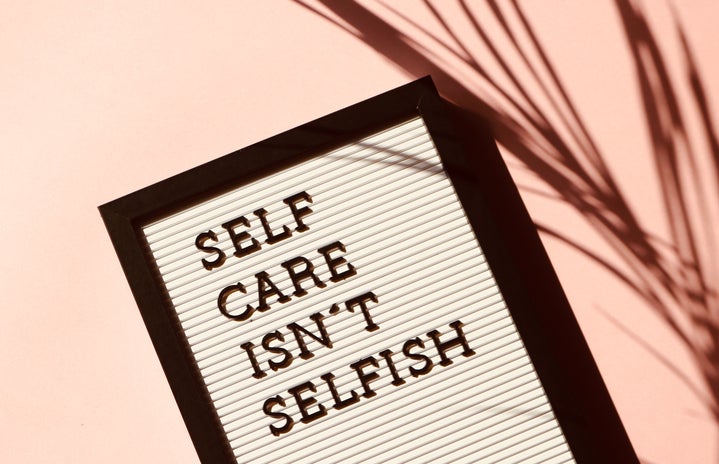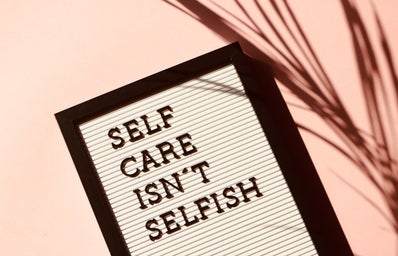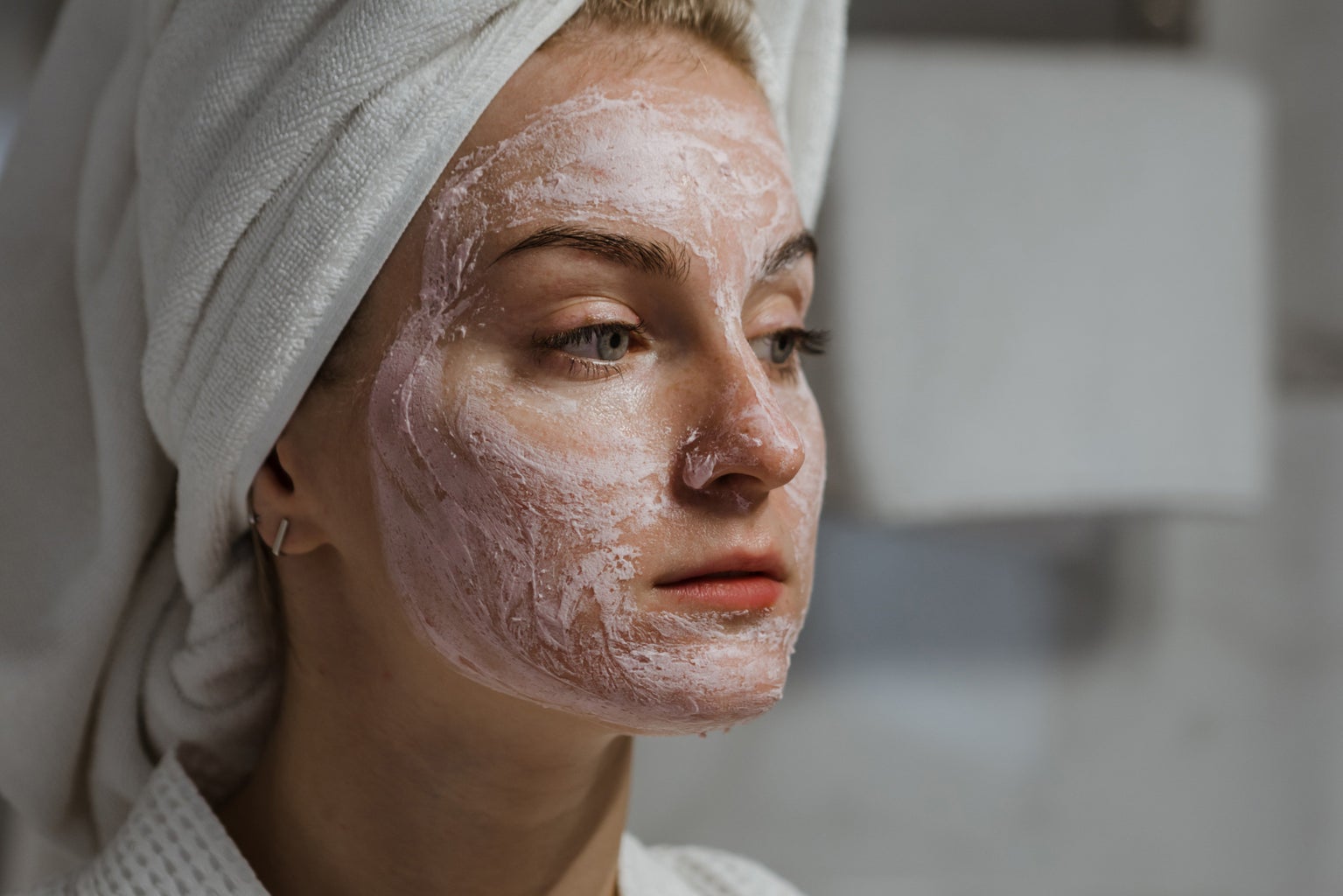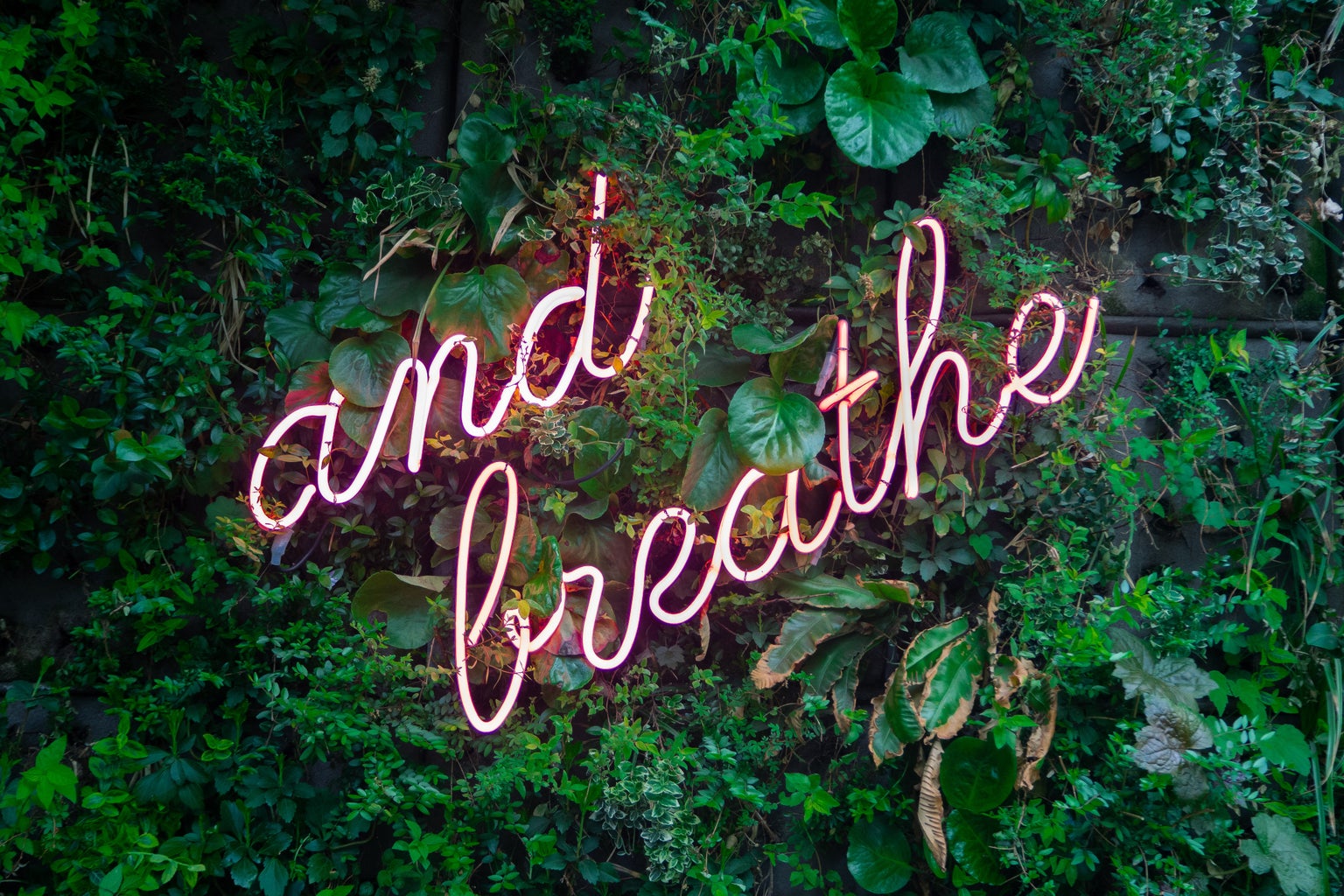Doing Self Care When You Don’t Have Time
Over the last couple of years, self-care has become a mental health buzzword that people throw around and use as an equivalent to “treat yourself.” Once it became common vernacular, capitalism did what it always does best—and tried to monetize self-care by projecting the idea that self-care requires the purchase of something (think bath salts, fancy food or even lavish vacations). Since we live in a culture where we judge our worth based on our productivity—another byproduct of capitalism—we often feel guilty for slowing down and investing in ourselves in a way that will not result in a “product.” The loophole capitalism has created to market self-care revolves around guilt. Companies have figured out that if people buy something, then they will feel more compelled to follow through with the self-care activity related to their purchase (like a fancy bubble bath) because they need to justify spending their money. Then people unknowingly make this connection between buying something and self-care. Therefore, people start to associate self-care as indulgent—and expensive. However, self-care can be entirely free as self-care consists of a variety of activities that contribute to our mental well-being. Self-care is a way of reclaiming our time and our lives for ourselves. It does this by reframing ‘pleasure seeking’ as necessary to live functionally. There are two main categories of self-care: practical self-care (which is about taking reducing the mental load we all carry in our heads) and pleasurable self-care (which is about enjoying life).
Three Examples of Practical Self-care:
Unload/load the dishwasher
Household chores require frequent maintenance and falling behind is far too easy to do. Having clean dishes and a clean kitchen helps calm down the living space and makes cooking meals easier. When you are in a rush the mental load can be lessened by completing a that is straightforward. Something like laundry, on the other hand, requires multiple steps, and if you don’t have a washer and dryer in your apartment, it requires leaving the house. The dishes/dishwasher requires fewer steps and needs to be completed more frequently, making it a great self-care practice when you are short on time.

Check Bank Account
Another self-care tip that can be done quickly is checking your bank account and assessing your spending for the month. It’s easy to get into certain spending habits without becoming aware of them. By taking five to ten minutes to notice trends in your spending, and planning for how to spend money for the remainder of the month, you are then more likely to save money and plan. For example, if you notice that every Wednesday you tend to go out to eat then you can plan to not go out on Monday or Tuesday. Then on Thursday, you could deposit the money you saved eating homecooked meals on Monday and Tuesday into your savings account.

Breathing Exercise
If you are feeling particularly stressed or grieved, another thing you can do is take a mindfulness break. A mindfulness break is when you ground yourself at the moment. You can do this by finding a safe, private place to sit down. As you are sitting down thinking about what it feels like to be sitting wherever you are. Next, it is important to close your eyes and focus on your breathing. A good rule of thumb is “in for thirty seconds” and “out for thirty seconds.” Grounding is all about being absorbed by the present moment. Meditation is another option. Meditation focuses on stopping the mind and letting your thoughts be still. There are many apps that one can use to guide them through a quick meditation.
Three Examples of Pleasurable Self-care:
Make a homemade tea or coffee
Even if you have hours of homework ahead of you, a tense meeting with roommates or even a difficult dinner with family to get through, taking a minute or two to make a beverage that you like is time effective (cost-effective if it is homemade!) and it just adds a little something pleasant to a stressful situation. Life does not always provide ideal scenarios or allow for long breaks; sometimes self-caring is learning how to adapt and make difficult experiences less miserable. When you sip your drink, use that as a prompt to remind yourself of something you are grateful for. If you are in a slump, and cannot think of anything, then just be grateful for the drink itself.
Stop and listen to three songs
Regardless of how busy you are, you often have enough time to take a small break and listen to a few songs. In order to not let time, get away from you, it’s best to set a number before you start. If one picks three songs and each song is around three minutes then that is a nine-minute total break. To make the most of the experience, try to sit down and close your eyes and solely focus on the music. By not multitasking you are allowing for the music to have a stronger impact. Focus solely on the music and what it makes you feel. How much you structure this experience is up to you. There is no ‘right’ way because self-care is all about what works for you. Some people may want to pick songs that reflect their current mental state and other people may want to pick songs that are more upbeat to help them through a difficult emotion/situation. Sometimes having to pick a song that represents our emotions helps us practice identifying and exploring our emotions, which lends itself to our overall mental well-being.
Go on a Walk
A great way to feel better is to get your body moving. You don’t have to do a full-body workout for thirty minutes, but moving your body lets out neurochemicals that increase happiness and reduce stress. Something simple like a short ten-minute walk can help improve your mental well-being. Not only will the walk get you moving, but it will also get you out in nature, breathing fresh air and it will act as a break to your routine. Try to keep your phone in your pocket and notice your surroundings. Remember that happiness is something practiced and invested in. Every time we do an activity that is meant to invest in ourselves, but we undercut it by having Netflix on in the back or by checking our phones, it’s like we are investing seventy-five cents for every dollar we could be putting in.
Self-care is not shallow or fixated on immediate gratification. Self-care is anything that we do with the purpose is to invest in ourselves. Investing in ourselves makes life worth living, it helps us deal with stress and disappointments and reminds us to seek out joy. We only have (as far as we know) one shot at life and self-care helps us handle the moments of turmoil and aids in enhancing the best moments of our lives.






